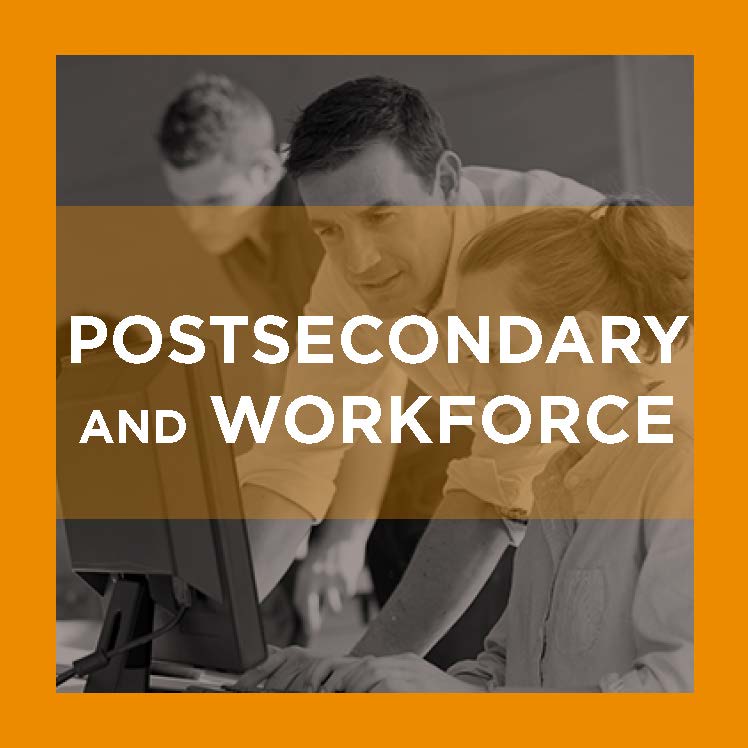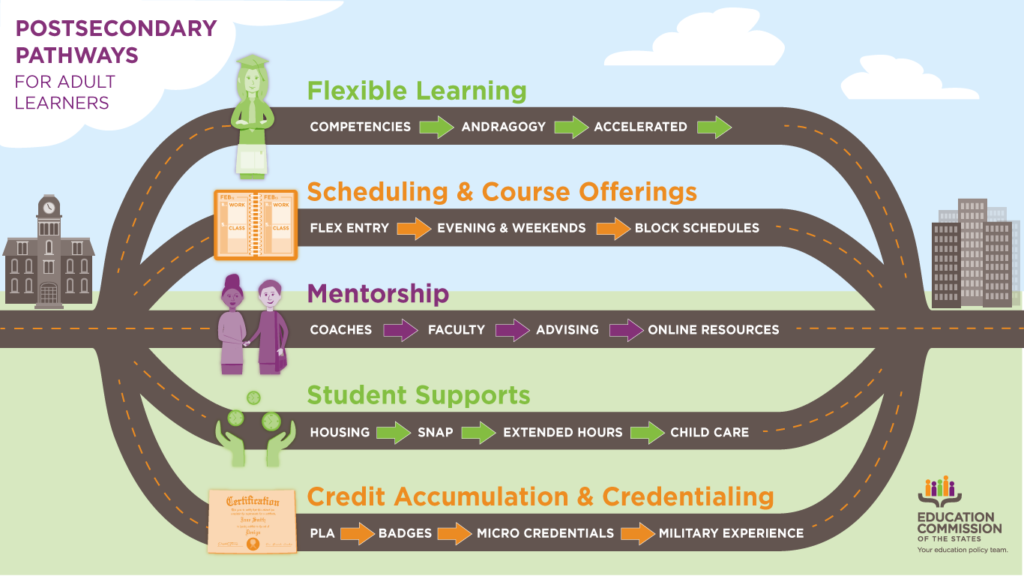What does it look like for an adult learner to move through postsecondary education and into the workforce?
How is that journey different from a traditional student’s pathway?
What supports can ease that journey and increase likelihood of completion?
These are the types of questions that institutional leaders and policymakers need to be thinking through to address the growing adult learner population — a population that is crucial to any institution’s or state’s attainment goals.
Adults find multiple entry points to postsecondary, and do not always follow the traditional fall semester start time. Adult learners can come to postsecondary education with some college credits or no postsecondary experience. Regardless of the starting point, adult learners should have the chance to start fresh, with all the resources necessary for successful completion. This infographic and the elements outlined here provide institutional leaders and policymakers with a roadmap to success for adult learners.
Flexible Learning: With 58 percent of students working while in college, institutions need to provide multiple options for flexible learning, including competency-based education, accelerated programs and online course offerings. Flexible learning may also include moving from pedagogy to andragogy (explained here and here), providing adults with an open learning environment.
Scheduling/Course Offerings: Adults benefit from structured scheduling or guided pathways. Providing an adult learner with a set schedule, including predictable days/times, and offering major courses in sequence sets them up for continuous enrollment and timely credential completion. Structured schedules could be set in blocks or offered evenings and weekends.
Mentorship: Adult learners tend to have busy schedules, balancing work, home life and school. The admissions process, course registration and financial aid applications can become overwhelming tasks. This student population can benefit from a dedicated mentor — including coaches, advisers, faculty and online resources — to help keep them on track to completion.
Student Supports: Institutional leaders and policymakers should consider additional supports outside of education, including housing, food security and child care, just to name a few. Many adult learners, especially low-income students, are eligible for programs like SNAP and CHIP; however some institutional policies are in direct conflict with eligibility requirements for these programs. By aligning social and educational policies, adult learners are better set up for success.
Credit Accumulation/Credentialing: As workforce needs evolve, so too should higher education credentialing. Twenty-four states currently allow public institutions to award course credit through prior learning assessments. PLAs provide students the opportunity to show competencies learned through work/life experiences, including military service. Along with alternative credit accumulation, institutions should consider credentialing beyond bachelor’s and associate degrees — including micro-credentials, badges and industry-recognized credentials. Introducing multiple means of credentialing provides additional options for the diverse pool of postsecondary learners, while not discounting the importance of the bachelor’s and associate degrees.
States and institutions would benefit from a full analysis of their current postsecondary policies and how friendly they are to adult learners. (We can help with this; contact us here.) Each state presents a unique starting place with different funding models, policy environments and diverse student populations. Understanding the current landscape of adult-friendly policies provides evidence there is a need for more adult learner supports. As multiple organizations and states point out the need to increase outreach to this student population, they also need to keep in mind how an adult learner accesses and moves through postsecondary education.











